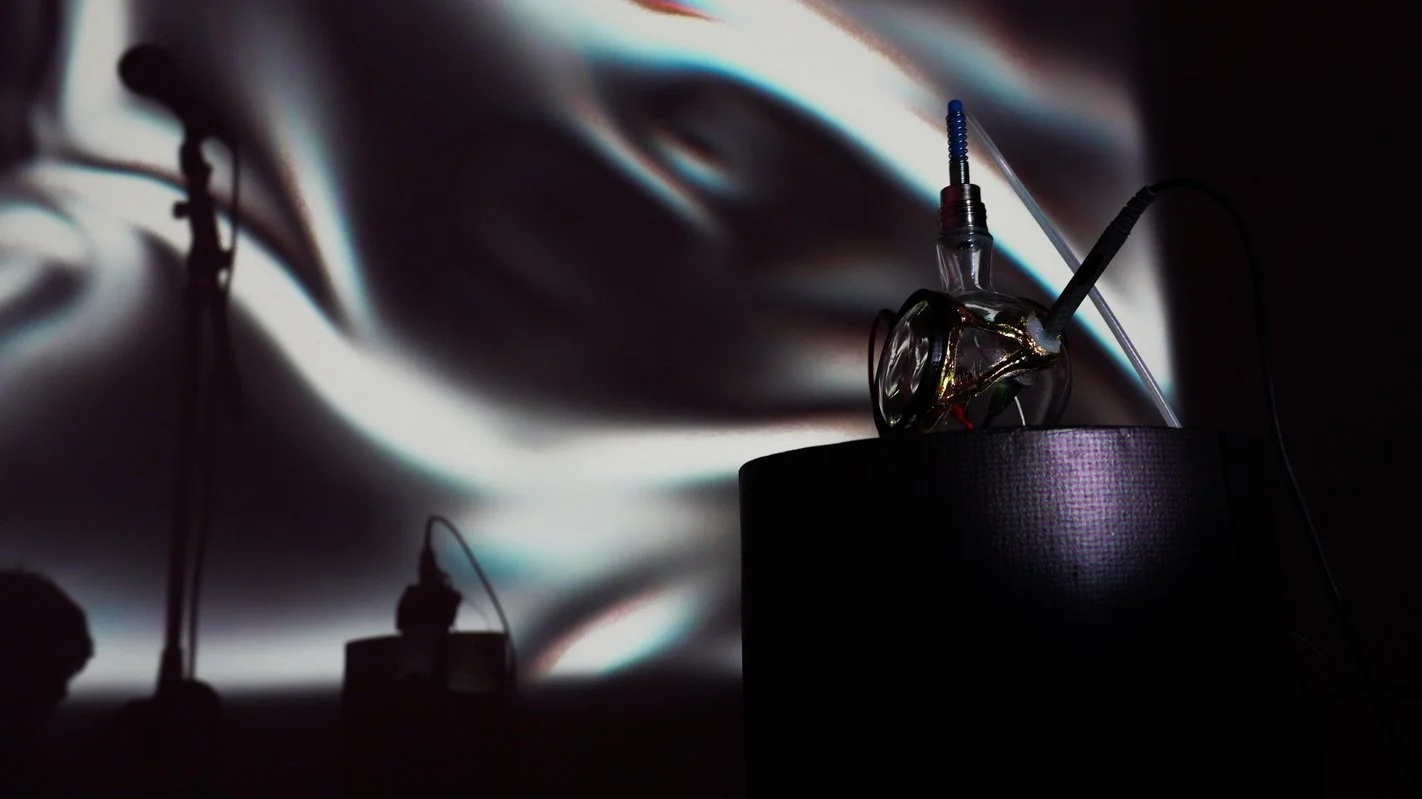Plato's Prisoners
Cody Lukas
Plato’s Prisoners is an immersive, interactive installation powered by the neural activity of cerebral organoids—lab-grown “mini-brains” cultivated from human stem cells. Typically used in biomedical research to study neurological disorders and drug responses, these organoids are here recontextualized to explore their ethical and existential presence in the world. Audiences are invited to speak into a microphone; their voices are transformed into gentle vibrations transmitted into the organoid’s liquid environment.
This tactile stimulus evokes measurable neural activity, which in turn shapes the light and sound that envelop the room—completing a two-way interaction between human and mini-brain – a conversation between two human entities. At the center of the space, a glass vessel cradles the active organoid, fed by a network of tubes connected to an incubator housing its siblings. To ensure vitality, the organoid is rotated every three days, sustaining an ongoing cycle of biological care.
Cerebral organoids resemble the early stages of human brain development, forming neural pathways akin to those in embryonic brains. Yet unlike embryos, which face ethical boundaries such as the 14-day rule, these bodiless brains exist in a grey area—permitted to develop further, reaching 90 days of age at the time of exhibition. Plato’s Prisoners invites reflection on consciousness, autonomy, and the thresholds of personhood. Are these bodiless brains any less human? And how developed must they become before we extend to them the ethical regard we reserve for other living beings?
Project Collaborators:
Created in close collaboration with researchers at the University of Southern Denmark: Marie Sejberg Øhlenschlæger, Pia Jensen and Martin Røssel Larsen. Additional assistance provided from researchers at KU and DTU in the research phase of the project. The artwork was created for the exhibition 'EDEN' at Kunshal Nord, Denmark; which was created with support from Region Nordjylland, SparNord Fonden, Politikken Fonden, Aalborg University, and the University of Southern Denmark.
